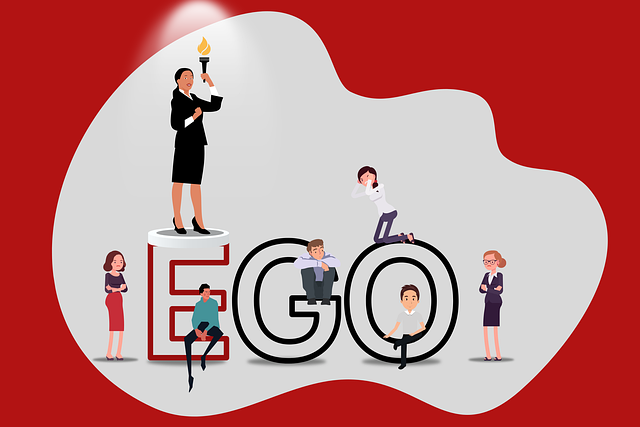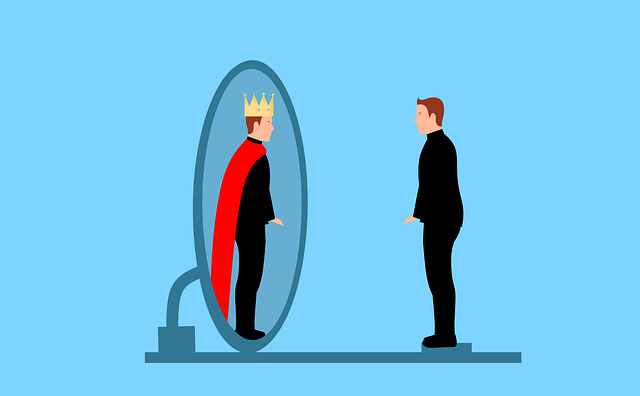While the id is responsible for fulfilling basic needs and desires, it can lead to impulsive and selfish behavior if left unchecked. The ego helps us navigate reality by balancing the demands of both the id and superego, but an overdeveloped ego can result in arrogance or lack of empathy. On the other hand, a well-developed superego promotes moral values and ethical behavior, but an overly rigid adherence to these principles may inhibit personal growth or create unrealistic expectations.
What is the id?
The id is the primitive, unconscious part of our psyche that seeks instant gratification without considering the consequences. It’s present in us since birth, and it operates on the pleasure principle – seeking immediate satisfaction for all our wants and desires.
Freud believed that the id was responsible for all our instinctual needs, such as food, water, sex, sleep or aggression. When we experience any discomfort or dissatisfaction in these areas, it leads to a feeling of tension within us which motivates us to take action to relieve this tension.
The id doesn’t care about societal norms or moral values; it only cares about fulfilling its own desires. For example, if you’re hungry and see a delicious cake at someone else’s party; your id might tell you to grab a piece even though it’s not appropriate behavior.
While some may argue that having an id can lead to impulsive actions and negative outcomes; there are also positive aspects of this primitive force. The desire for self-preservation is one such aspect where we strive towards maintaining our basic needs by ensuring survival through fight or flight response.
Understanding what comprises the id helps individuals understand how their instincts work within themselves.
What is the ego?

The ego is the mediator between the id and superego. It operates on a conscious level, making decisions based on reality and logic rather than instinct or morals. It helps to balance our desires with what society deems acceptable.
The ego develops during early childhood when a child realizes they are separate from their surroundings. It’s responsible for rational thinking, problem-solving, and decision-making. The ego analyzes experiences to find ways of satisfying both the id’s urges and the superego’s moral standards.
When we face internal conflicts where our desires conflict with societal norms or morals, it’s often because of an imbalance in our egos that fail to regulate these conflicting aspects of ourselves. For example, if we want to eat junk food but know it can be unhealthy in large quantities based on societal norms, our ego has to weigh those factors out before deciding whether or not we should indulge.
A healthy ego allows us to navigate through life by balancing competing interests without being too impulsive or overly restrained by outside influences such as morality or social pressure.
What is the superego?
(Image by Donate PayPal Me from Pixabay )

The superego is the third component of Sigmund Freud’s psychoanalytic theory, along with the id and the ego. It represents our internalized moral standards and values that we acquire from our parents, society, and culture. The superego is sometimes referred to as our “conscience” or our “ideal self.”
The superego operates on a moral principle and aims to suppress the desires of the id in favor of upholding social norms and ethical principles. It seeks perfection, rather than pleasure or gratification like the id does.
Freud believed that conflict arises between the id (our primal impulses) and the superego (our moral compass), which can cause anxiety for an individual. For example, someone may feel guilty for acting on their sexual desires because it goes against their superego’s ideas about morality.
However, having a strong superego can also lead individuals to be more empathetic towards others and act in ways that benefit society as a whole. On the other hand, an overly dominant or harshly critical superego could lead to feelings of shame or inadequacy.
Understanding how these three components interact within us helps us better understand ourselves and navigate our relationships with others.
How do the id, ego, and superego interact?
The id, ego and superego are three distinct components of Sigmund Freud’s psychoanalytic theory. Each one has its own unique characteristics that work together to create human behavior. The id is the primitive part of our personality, driven by instinctual desires for pleasure and gratification. The ego is the realistic aspect of our personality that balances out the id’s impulses with rational thought and logic. The superego represents our moral conscience or sense of right and wrong.
These three components interact in a complex way to shape how we think, feel, and behave. In some cases, they may conflict with each other as different parts of our psyche vie for control over decision-making processes. At other times, they may work in harmony to produce healthy behaviors.
For example, if someone experiences hunger (id), their ego will help them identify a realistic solution such as eating an appropriate meal rather than resorting to impulsive actions like stealing food from others (superego). Similarly, when faced with difficult ethical decisions at work or personal life (superego), people should use their logical mind (ego)to make well-informed choices instead of following only emotion-driven instincts(id).
Overall, the interaction between these three mental constructs creates a balance between immediate satisfaction and long-term well-being while shaping various aspects of human behavior such as impulse control, self-awareness, morality among others .
Examples of id
The id is the primitive part of our psyche that is responsible for fulfilling our basic needs and desires, regardless of societal norms or consequences. It operates on the pleasure principle, seeking instant gratification without considering long-term effects.
One example of id behavior could be indulging in excessive eating or drinking to satisfy immediate cravings, even if it leads to negative health outcomes. Another example could be engaging in impulsive behaviors such as gambling or shopping addiction without considering financial stability.
The id also plays a role in sexual desires and aggressive impulses. For instance, having an affair with someone despite being committed to a partner may satisfy one’s sexual urges but can lead to emotional distress for all parties involved.
While the id may seem selfish and impulsive, it serves an important function by driving us towards fulfilling our basic survival instincts. However, when left unchecked, it can lead to destructive behavior that harms both ourselves and others around us.
Examples of ego
The ego is the mediator between our basic desires and the reality of the world. It helps us to acknowledge social norms and values, while at the same time satisfying some of our desires. Here are some examples that will help you understand how ego works in real life.
For instance, let’s say you want to buy a new car, but your budget doesn’t allow it. The ego will step in and find a solution; perhaps you can lease a car or buy an older model that still meets your needs.
Another example could be when someone insults you publicly, and your initial reaction might be to retaliate with anger or violence. However, since this would likely have negative consequences like losing friends or getting arrested, the ego steps in again by suggesting other ways to handle the situation such as walking away or confronting them calmly.
In relationships too, we often see examples of egos coming into play. Say if one partner wants something from their significant other that they cannot give due to various reasons? Ego comes into action here by finding common ground between both parties so that neither feels compromised.
These are just a few instances where our egos come into play every day without us even realizing it. The ego is not always positive – sometimes it can lead us down paths that don’t make sense for ourselves or others around us.
Examples of superego
The superego is the moral compass that guides our behavior towards what is considered right and wrong in society. It acts as a filter for our thoughts, feelings, and desires. Here are some examples of how the superego influences our behavior:
One example of the superego at work is when we feel guilty about doing something that goes against our values or beliefs, such as lying or cheating. The guilt we feel comes from our internalized sense of morality.
Another example is when we behave in a way that reflects societal norms and expectations, even if it goes against our own desires or instincts. For instance, choosing to attend church services even though you don’t believe in God could be a reflection of your superego’s influence.
The superego can also play a role in self-discipline and self-control. For example, someone who has made a commitment to eat healthier may rely on their superego to resist temptation and stick to their diet plan.
In extreme cases, an overactive or overly strict superego can lead to anxiety disorders such as obsessive-compulsive disorder (OCD) where individuals have uncontrollable urges to perform certain behaviors due to fear of violating their moral code.
While the id represents primitive impulses and desires while the ego balances those with reality-based thinking; the Superego serves as an internal regulator ensuring smooth operation between both forces keeping us morally grounded within society’s ethical boundaries.
Featured Image By – Donate PayPal Me from Pixabay









